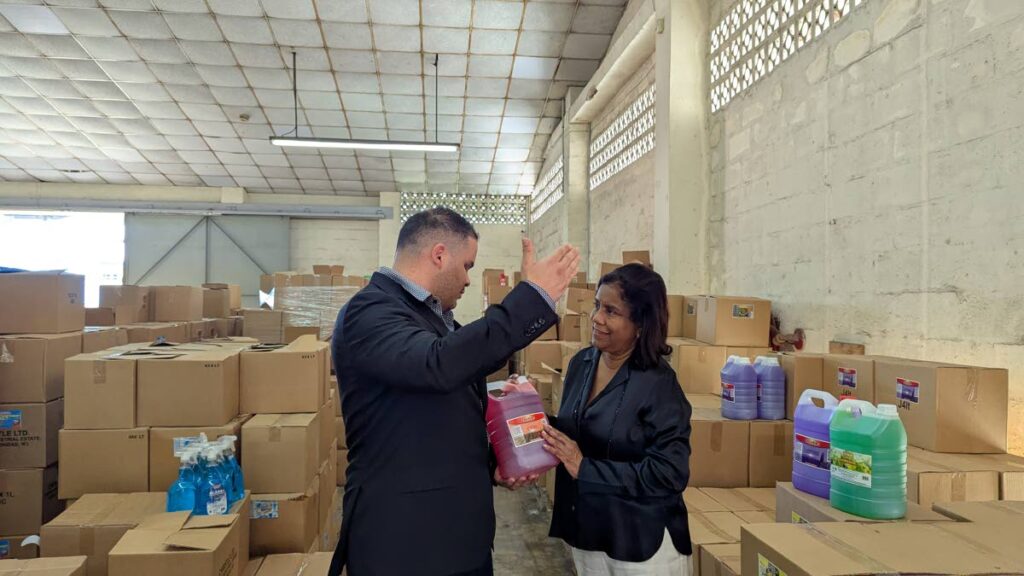Why traditions are important
Written by Newsday on December 18, 2024

Kanisa George
THERE IS a feeling in the air that comes around about once every year. It’s an indescribable warmth that permeates without reason and brings happiness and joy that aptly describes the season.
Ah real Trini Christmas, they say, is made to perfection with parang, rum and merriment, whether night or day. But if we were to take away sorrel, ginger beer and ponche de crème from the fold, we’d be left with very little to hold. Besides the reason for the season and happiness in the air, our culture’s traditions give our Christmas its remarkable flair.
Where would we be without our traditions? Where would we be without those anchors to the past that keep us grounded, but sadly are dwindling with intense rapidity?
From my vantage point, it appears we’ve been swept up by the convenience of modern living and have en masse adopted values set for us by our American counterparts, all while simultaneously losing hold of the values our ancestors so beautifully crafted.
The easier life gets, it appears, the more disenchanted we’ve become to maintain the ethos of yesteryear. Even I have found myself there: why grate coconut when there’s a perfectly easy way to make coconut milk from a pack? But it’s more than just convenience; when we disregard the things that make us uniquely Caribbean or Tobagonian, we erode pieces of our identity, crafted to perfection from the trials of our ancestors, who tirelessly sacrificed for us to bask in the luxuries of today.
Cast aside any cultural pressure to adapt to the modern way of living, traditions, especially those recognised during holiday periods like Christmas, add meaning to our way of life in a manner that modern luxuries quite frankly cannot.
While traditions like baking a black cake or beating eggs to make ponche de crème might appear painstaking, these tasks, when done with family and loved ones, are bonding measures that connect us to the past and present, and foster openness and communication. “Christmas traditions, in particular, are essential ritualistic behaviours that nurture us and our relationships.” They add a sense of belonging to our lives that anchors and unites us not just to our families, but to the broader community.
One study found that traditions of this nature were especially important for children, with one citing that they often crave the comfort and security that come with the sense of predictability traditions create. As adults, we are zealous to maintain some traditions we’ve carried since childhood as they often provide a sense of continuity and stability, even in the face of changing or challenging circumstances.
When I think back at some of my fondest childhood memories, I seldom remember the gift I received for Christmas 2001. What I do recall with great joy is my mother’s obsession with apples, grapes and sponge cake.
On Christmas Eve, while the ham was in the oven and my mother was busy putting up curtains, I would be given an apple, a handful of grapes and a slice of sponge cake to eat as I watched all the excitement around me. And this continued year after year like clockwork. Come what may, I looked forward to the fuzzy feeling the gesture created.
In a boarder context, this small act was a powerful tradition that significantly impacted my shared experience and informed my perception and behaviour towards the idea of family and community. That small act made me feel part of something much bigger than myself.
We tend to trivialise moments (neatly wrapped in traditions) that deepen the human experience and instead glamourise material pursuits that mainly provide tangible benefits.
Gift-giving is, of course, a significant part of the human exchange, but we often regard it as the most essential aspect. Even the idea of “putting away one’s home” places far too much emphasis on tangibility rather than necessity or sustainability. Our desire to absorb all that is trendy and modern should not be our only priority for the season.
While it is natural to experience a cultural shift or change in perspective, there is value in maintaining traditional customs. Of course, you’re not bound to the process of creaming butter and sugar with a wooden spoon to preserve traditional values. Still, in all our efforts to be progressive, we must find ways to keep and celebrate our traditions while allowing them to evolve with modern advances.
With all the fuss that comes with the festive season, let’s not forget those customs and traditions that make us uniquely Trinidadian/Tobagonian. Without the melodic vibrations of soca parang or the crisp taste of a beastly cold Shandy Carib, Christmas as we know it would not exist, and without our traditions, we would be like a boat without an anchor.
The post Why traditions are important appeared first on Trinidad and Tobago Newsday.




